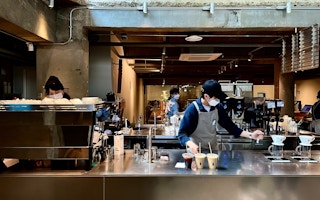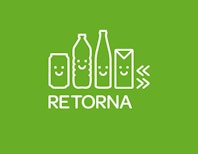South Koreans are known for their obsession with a good caffeine fix. From small-batch pour-overs to the Instagram-famous dalgona brew, coffee has been a constant part of people’s lives, and is sometimes considered a status symbol in the East Asia nation. It is not hard to spot someone holding a takeaway coffee cup, while walking along the trendy streets of Seoul or other big cities.
The high consumption rate of disposable coffee cups, driven by an exponential growth in coffee outlets across the republic in recent years, however, has exacerbated a plastic waste crisis that is worsening due to the coronavirus pandemic. As East Asia’s largest branded cafe market, South Korea has more than 70,000 coffee outlets. About 8.4 billion single-use cups are used per year by South Koreans, according to data from the Container Deposit System Management Organisation. The government now wishes to reverse the trend by mandating that coffee chains and fast-food outlets start charging a refundable fee to customers for every single-use plastic or paper cup they give out.
The institution of the scheme, already approved by Cabinet and scheduled for June this year, has caught the attention of worldwide observers, especially as a broader effort to create a circular economy that reduces waste and throwaway items is gaining momentum and disrupting traditional conversations about recycling. All eyes are on whether South Korea succeeds in getting buy-in from both businesses and consumers.
Insiders familiar with the workings of the new scheme told Eco-Business, however, that the Korean government so far has not been forthcoming with details, such as how the cups are going to be collected and recycled, and who will pay for the scheme. This is worrying, given that the plan is just months away from execution. The government needs to be more transparent and aggressive in pursuing its objective of waste reduction, they said.
Calls for an extension to more cafe and food outlets
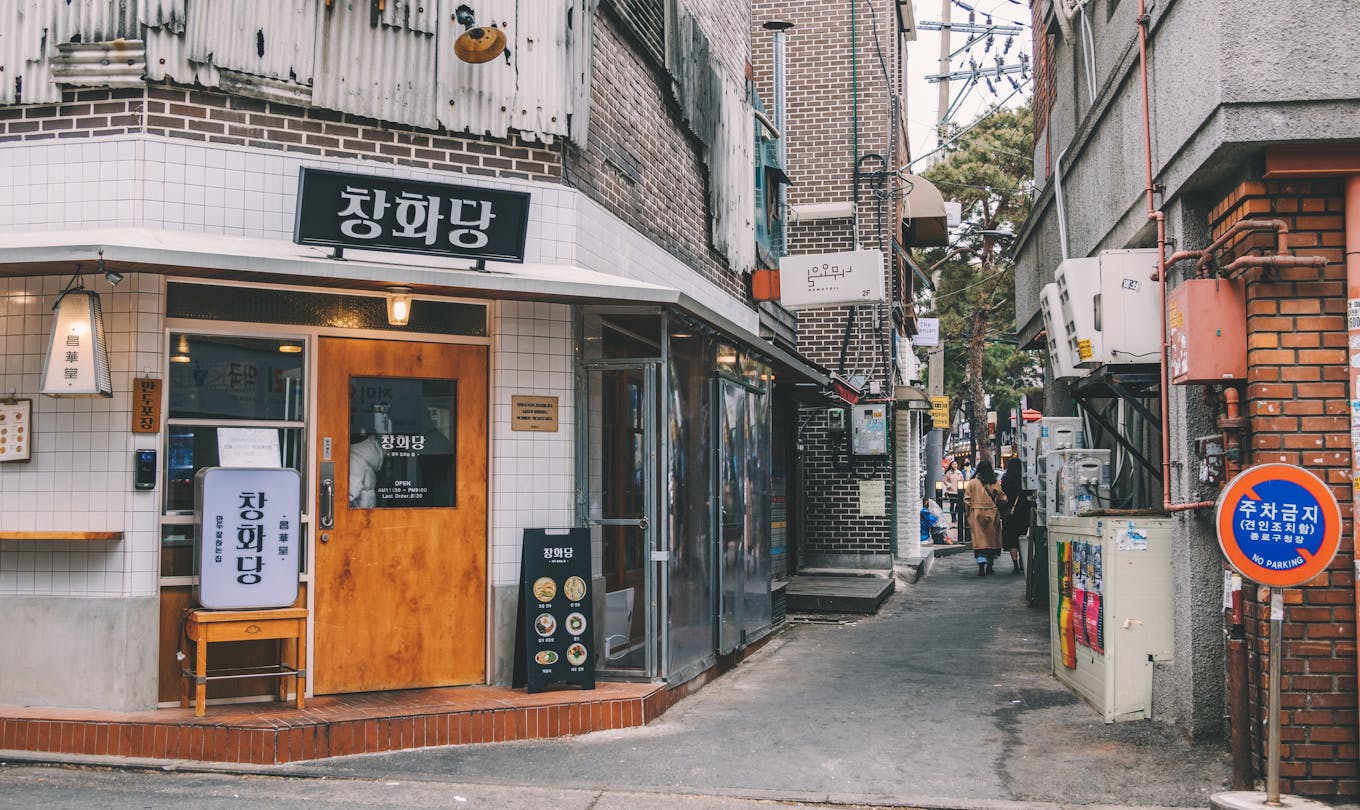
It is easy to spot these small and independent ‘boutique-brand’ cafes along the trendy streets of Seoul. Cafes with less than 100 outlets are exempted from the new deposit return scheme. Image: Bundo Kim / Unsplash
One obvious flaw that critics point out is the limited coverage of the scheme. Exemptions to the legislation mean that only businesses with 100 or more outlets, usually branded cafe and fast food franchises that currently form 35 per cent of all related businesses, would be subjected to the new rule. Smaller cafes and mom-and-pop shops are allowed to opt out of the scheme.
The limited market coverage might lead to less-than-ideal results, said experts. They have cause for concern, since a similar disposable cup deposit introduced in 2002 had failed before. The scheme, then not written into law, had been scrapped in 2008 for a variety of reasons, ranging from low return rates to political considerations, according to people that Eco-Business spoke to.
The stakes are especially high, as South Korea’s bid to legally extend its mandate and add a deposit to takeaway coffee cups, which have become a public eyesore as they add to street litter, will be a world first. The Deposit Return Scheme (DRS), a mechanism common in European jurisdictions, where an additional payment for single-use beverage or food containers, charged at the point of sale, is refundable to consumers who return the used cups and bottles, has been identified as a potential solution to the trash crises that many countries are facing.
In Asia, Singapore, for example, has announced that it will be implementing the DRS for beverage containers by 2022 as the first phase of the Extended Producer Responsibility (EPR) approach for packaging waste management, in an attempt to close the plastic waste loop.
In 2019, the European Union (EU)’s Single-Use Plastics Directive mandated for member states to collect 90 per cent of all plastic beverage containers by 2029.
Miquel Roset, a close watcher of the situation in South Korea and director of Retorna, an international non-profit which works on raising awareness of zero waste goals, warned that limiting the scope of the new scheme creates an unequal playing field for businesses involved and also causes confusion to consumers.
A strong advocate of deposit return systems, Roset believes that there are many benefits to widening the scheme to full coverage. For example, this would help recyclers achieve better economies of scale and lower the costs of collection; businesses will also be incentivised to innovate and create better cup designs that aid recycling.
“Without a full scope of coverage, South Korea will not be ‘best in class’ and would not be seen as a global leader in pushing for deposit return schemes. The opportunity is there, and South Korea must take the lead,” he said.
South Korea has one of the highest consumption levels of disposable cups in the world. A surge in plastic waste fanned by the pandemic, as a result of increased use of food deliveries and takeouts for meals, has hampered South Korea’s green initiatives too. According to the Ministry of Environment, overall deliveries were up 19.8 per cent in 2021 compared to the year before, with food deliveries up 75.1 per cent. The coronavirus has also crippled the export market for used plastic, adding to industry woes.
Experts say that a shift in waste management practices is urgently needed to close the plastic loop, and governments, researchers and industries need to work towards intelligent design and sustainable recycling. Relying on voluntary campaigns to cut plastic waste would not do the trick.
“
Without a full scope of coverage, South Korea will not be ‘best in class’ and would not be seen as a global leader in pushing for deposit return schemes. The opportunity is there, and South Korea must take the lead.
Miquel Roset, director of Retorna
In an opinion piece for the KyungHyang Shinmun, a South Korean news daily, Jang Hana, former member of the South Korean National Assembly, argued that the government has not been “getting it right” with the new scheme, given that there is an enforcement decree to limit coverage of the legislation to only 35 per cent of all cafe and food outlets.
According to the Ministry of Environment, in South Korea, large franchises are now responsible for the use of 2.7 billion single-use cups a year, and the ministry estimates that the scheme’s application is sufficient to achieve a 37 per cent recycling rate for the cups. Jang, however, describes the decree as “absurd”, especially as this recycling goal is much lower than what has been achieved for soju and beer bottles nationwide, which has a recycling rate of 87 per cent.
“A deposit return system needs to be properly implemented to eradicate the problem of waste and street littering due to single-use cups. Otherwise, there will still be almost two-thirds of the cups that will not be recovered and recycled,” said Jang. “The system for resource circulation is meaningful only when universally applied.”
In May last year, the Ministry of Environment had also said that the new policy is expected to help boost recycling, cut costs related to waste incineration and reduce carbon emissions by 66 per cent.
The clock is ticking but details are missing
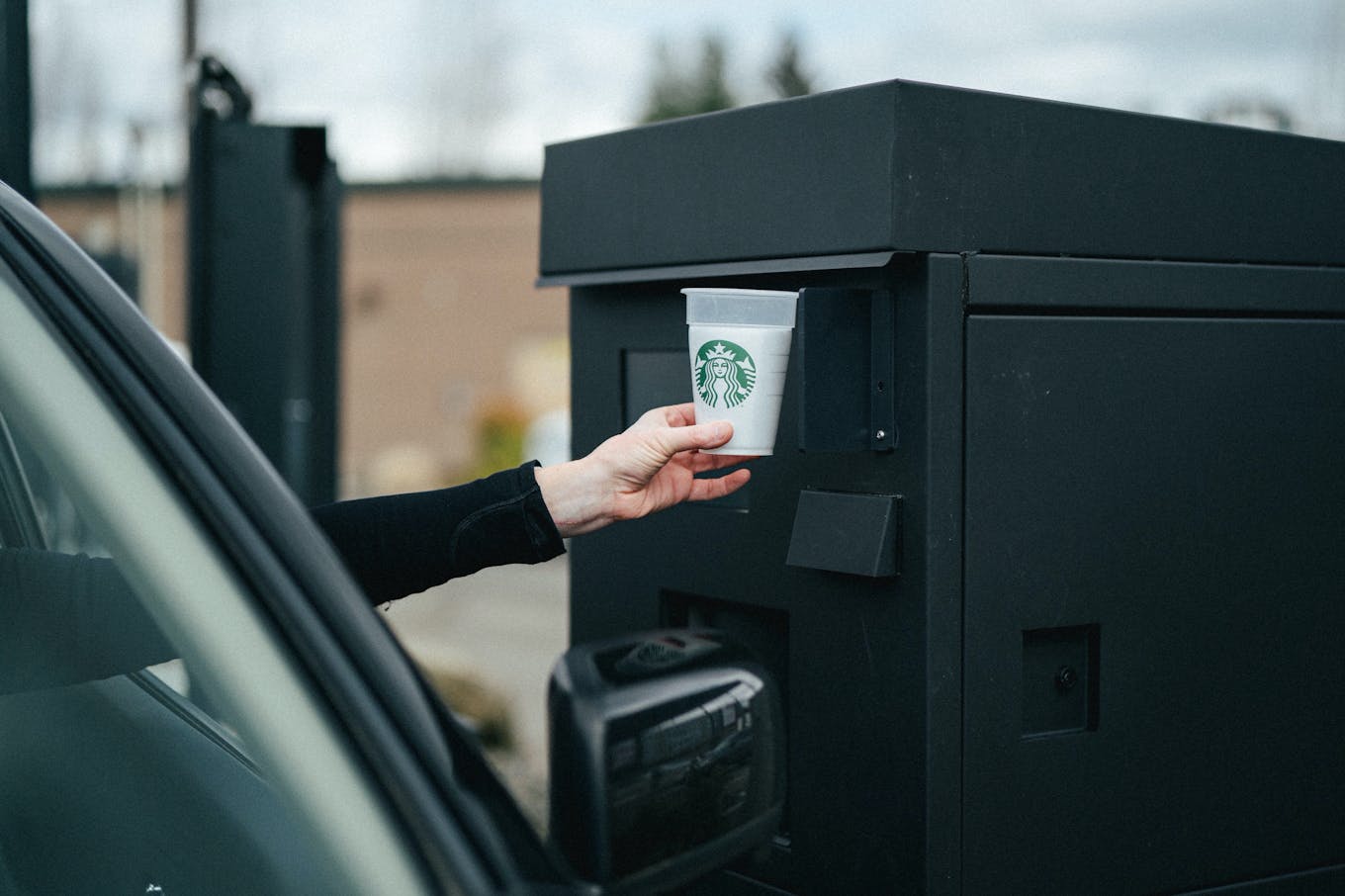
Starbucks South Korea announced that it will reduce its carbon footprint by 30 per cent and also pledged to eliminate single-use cups from all stores by 2025. Image: Starbucks / Twitter
With the scheduled introduction of the new scheme that is likely to have huge ramifications for South Korea’s vast branded coffee chain market, major companies are starting to adapt to the rules and initiate their own plastic waste reduction projects. Starbucks’ announcement in April last year that it will stop using single-use cups in its South Korean stores by 2025 was notably seen as a curtain raiser for the changes to come.
The coffeehouse chain had also said that it will introduce a ‘cup circularity’ programme in some stores, where reusable cups can be returned and scanned at certain installed contactless kiosks, though so far there have been no updates on the results.
When contacted by Eco-Business, Starbucks, along with some of the coffee chains with a presence in South Korea, either did not reply in time to queries or declined to comment on the new rule, stating that it was premature to share further details on their plans.
Civic activists, on the other hand, told Eco-Business that there needs to be more scrutiny of businesses as the new scheme is rolled out. Hong Su-yeol, chief researcher at Resource Recycle Consulting, or more famously known as ‘Dr Waste’ in South Korea, has been fiercely advocating for the reduction of plastic waste in the food and beverage industry for many years through his social media platforms. He believes that without a legal mandate, the government will face huge inertia in getting smaller businesses to cut their usage of single-use cups.

Hong Su-yeol, chief researcher at Resource Recycle Consulting, or more famously known as ‘Dr Waste’ in South Korea, believes that without a legal mandate, the government will face inertia in getting smaller businesses to cut their usage of single-use cups. Image: Hong Su-yeol / Facebook
“The coffee franchises will not give up on the revenue that can be made from selling these cups to their franchisees. The business of single-use cups is complicated,” said Hong, noting also that forgery may be an issue, if there is no deterrence for people who might use ‘fake cups’ to harvest the deposits illegally. “It is necessary to establish a joint return-and-collect system, but there are barriers to doing so.”
“There is not much time left for the government to sort out the details. The ministry seems to be hesitant in its actions as it is afraid that the charged deposit will bring about an overall hike in coffee prices. But if it is too lax with businesses, the policy might end up to only be a shell of what it is supposed to be,” said Hong.
Representatives from environmental groups who are participating in discussions with the Ministry of Environment and relevant agencies, believe that the new deposit fee will range between 200 to 300 won (US$0.17 to US$0.25). According to a survey conducted by the ministry in 2018, consumers believe that a fair value of the disposable cup deposit would be about 265 won (US$0.22). This is at least double of what was charged from 2002 to 2008, when a similar voluntary initiative ran.
Centrally-administered recovery system expected
But a higher deposit amount does not guarantee high return rates. Global evidence shows that the convenience of return points for consumers is still the main driver of a successful scheme. According to current market research, in instances where this is achieved, the return rate hits a minimum of 85 per cent and can go as high as nearly 100 per cent.
An effective collection system for used containers is another decisive factor in the success of a typical deposit return system. In Europe, almost all collection systems are now based around a return-to-retail model, where business outlets are legally responsible for the recovery of empty containers or bottles, which are then reused or recycled. When consumers return their empties, retailers can either collect them manually or install Reverse Vending Machines (RVM), which automate the collection process and sort the containers according to their material composition.
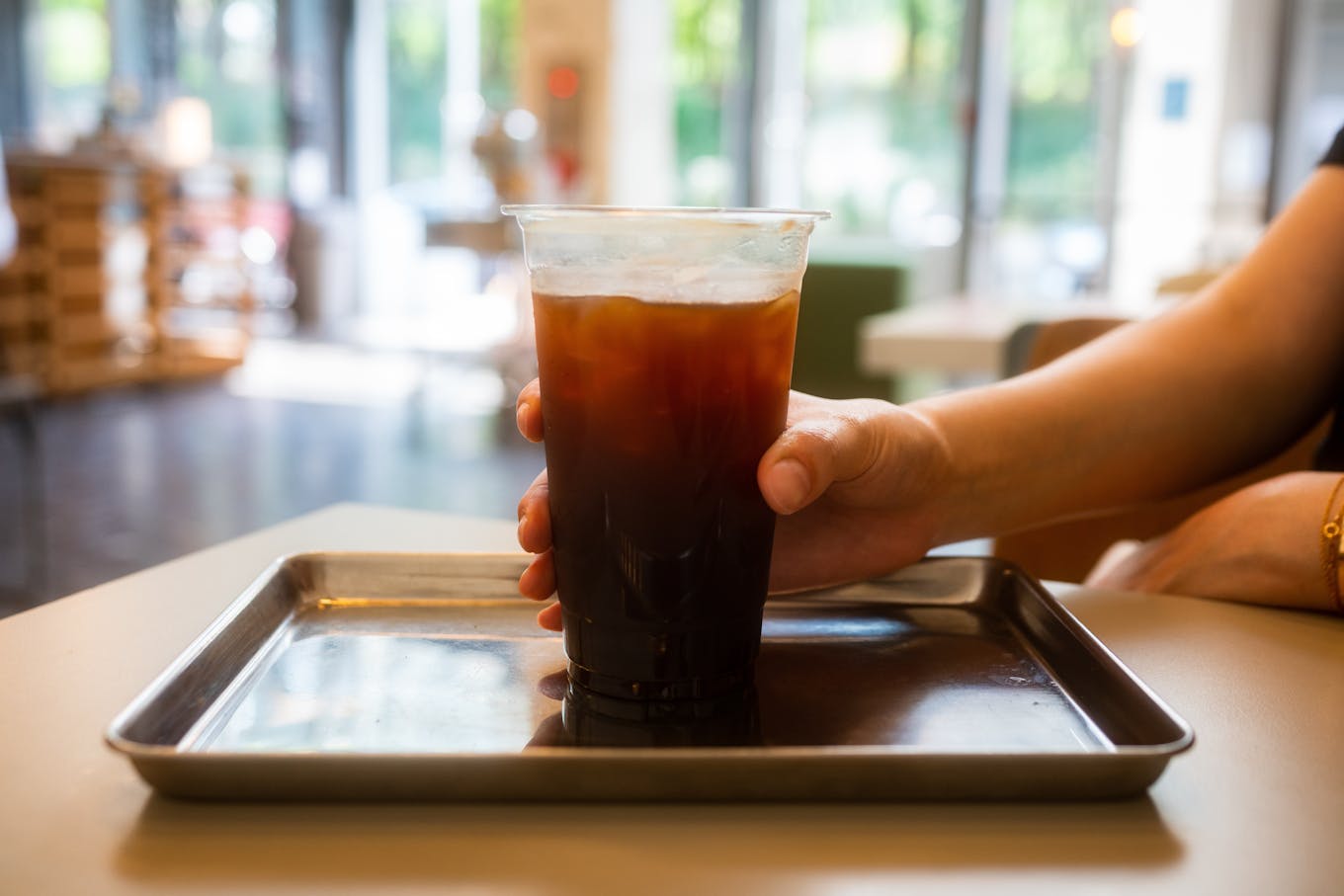
The deposit for single-use plastic or paper cups that cafes will charge will likely range between 200 to 300 won. Image: The Creativv / Unsplash
Roh Byung-sik, a 32 year-old advertising executive, told Eco-Business that younger South Koreans frequent small and independent ‘boutique-brand’ cafes and if these businesses are not on board with the new deposit return scheme, it will be a pity. “I sometimes bring my reusable tumbler for takeaway coffee from the neighbourhood joint, but I do not see many people doing that,” he said. “There needs to be a more compelling reason for people to recycle, and I think a stricter legislation with wider coverage will help. Until then, the waste problem will not improve.”
For example, the government has had to come down harder on businesses which provided disposable cups for customers who were dining in. Since 2019, South Korea has banned single-use cups for dine-in and businesses can be fined up to 2 million won (US$1670) for breaching the regulation.
The revised law, which is to be implemented soon, will ban single-use utensils, including plastic straws and stirrers for customers consuming food and beverages in-store.
A spokesperson for the Korea Women’s Environmental Network (KWEN), a Seoul-based non-profit that is actively in talks with the government on fighting plastic pollution, told Eco-Business that the authorities are expected to establish a recovery system that allows for the return of used cups “at any store, including at public places”, for effective collection. “We also expect an eventual standardisation of container design, where the material or structure of the cups is fit for recycling,” said the spokesperson.
KWEN is optimistic that more stores will come on board the scheme and that there will be consumer buy-in, since the reinstatement of deposits for disposable cups has gone through three years of discussions, with the eventual act being passed in the National Assembly, and opinion polls showing public support for the scheme at almost 90 per cent.
“
If the government is too lax with business, the policy might end up to only be a shell of what it is supposed to be.
Hong Su-yeol or ‘Dr Waste’, chief researcher at Resource Recycle Consulting
According to KWEN, in 2008, the old system was abolished when the cup recovery rate dropped to less than 30 per cent. Then, cup deposits were taken from consumers with no legal basis and some companies even treated the deposits as profits and used them unfairly for non-related promotional expenses. The pro-business tendencies of the ruling Lee Myung-bak government was also a decisive factor that led to the plan being scrapped. Since then, the use of disposable cups has risen exponentially.
South Korea is headed for another presidential election this March. However, the KWEN spokesperson believes that the June implementation of the deposit return scheme is cast in stone. “It matters where the policy is headed. A consensus has been formed among the public that now is the time to move forward to tackle the plastic crisis. We believe that the implementation of this system will not easily change just because of a change in government.”
KWEN thinks that consumers have become more discerning too, pointing to how Starbucks South Korea recently received complaints after it banned the use of personal cups and tumblers in stores due to pandemic restrictions. “Consumers are more critical of greenwashing and if companies are conscious of the needs of their customers, they have to try to keep up,” said the spokesperson.
Most consumers also recognise that driving up the recycling rate is at the core of what the hard-won legislation amendment should be about. There is tremendous promise in what South Korea is trying to achieve in finally zeroing in on implementing a deposit return scheme for single-use cups, but walking the last mile matters as well, and the authorities need to recognise that more can still be done ahead of June to get better results, said the experts. The public will be watching to see if the South Korean government and businesses can deliver on their promise, they said.

